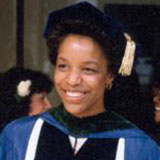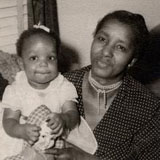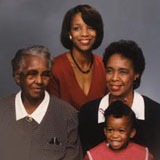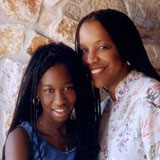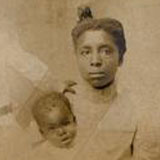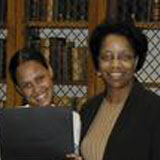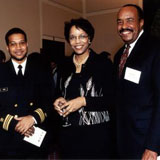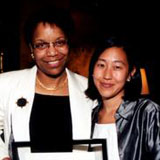Biography: Dr. Joan Y. Reede

Year: 2001
Achievement: Dr. Joan Reede was appointed Harvard Medical School's first dean for diversity and community partnership. She is the first African American woman to hold a position of that rank at HMS and one of the few African American women to hold a deanship at a medical school in the United States.
By the time I reached the seventh grade, I knew that I wanted to become a doctor. It never occurred to me that I would be entering the field of medicine as an African American or as a woman—it was simply what I wanted to do with my life.
Dr. Joan Reede works to recruit and prepare minority students for jobs in the biomedical professions, and to promote better health care policies for the benefit of minority populations. In 2001, she became Harvard Medical School's first dean for diversity and community partnership. She is the first African American woman to hold that rank at HMS and one of the few African American women to hold a deanship at a medical school in the United States.
Joan Reede was born in 1953 and grew up in the Boston area. She traces her roots to a great-great-grandmother, Alie Taswell, who was born into slavery in Georgia in the 1860s. Taswell and her descendents strove to improve opportunities for those who followed, and Reede's parents set high standards and encouraged her to pursue any career she wanted. A family friend, Amanda Cook, a graduate of Radcliffe College, encouraged her to work with others to achieve success.
By the time Joan reached seventh grade, she knew she was interested in becoming a doctor: Watching the television program Marcus Welby, M.D., she said she noticed that "nurses got orders and doctors gave them."
When she was ready to apply for college admission, however, a school counselor discouraged her from applying to Brown University. It was the first time she had been told she couldn't do something she wanted to do. She applied anyway and was accepted. After earning a bachelor of science from Brown in 1977, Reede trained at Mt. Sinai School of Medicine, and earned her M.D. in 1980.
She completed an internship and residency in pediatrics at Johns Hopkins University School of Medicine and a fellowship in child psychiatry at Boston's Children's Hospital, then got married and had a daughter, Loretta Jackson. After her divorce in the late 1980s, she went on to earn two more degrees, an M.P.H. in 1990 and an M.S. in 1992 from Harvard School of Public Health, all while raising Loretta as a single parent.
At Harvard, Dr. Reede was struck by the absence of minorities among the School of Public Health faculty. In 1990, after a year as a fellow at Harvard Medical School, Reede and several colleagues founded the Biomedical Science Careers Program (BSCP), to match minority students from high school through post-graduate levels with mentors in their fields of interest. BSCP also offers information on funding and training opportunities, and sponsors a biennial conference bringing together students and advisors for a day of discussion, seminars, and networking.
Dr. Reede is also a founder and director of the Commonwealth Fund/Harvard University Fellowship in Minority Health Policy, which offers physicians with an interest in minority and disadvantaged populations a year of professional training for leadership positions in health care policy and practice. She believes that "Health is linked to a large extent to social issues of poverty, employment, and education. So encouraging children to stay in school, recognize the opportunity education provides, and see hope for a promising future helps children, families, and community...I felt like it was the right thing to do, but not what my training as a pediatrician necessarily prepared me to do. Access to health care was my original interest, and I hope that these programs will help to train individuals who will be leaders, educators, and researchers in the field, and who will be health care providers prepared to ensure improved access for disadvantaged people."
Like her ancestors, who prepared the way for her, Dr. Joan Reede is motivated to expand opportunities for future generations, and is inspired by her role as a parent. Her daughter inspires her. "From the very beginning, my daughter, Loretta, has made a significant impact on my personal and career development...She continues to remind me of what is really important in life. She brings into proper perspective how I want to be viewed by her and how I would like her life to be."
Q. What was my biggest obstacle?
Dr. Reede's high-school guidance counselor advised her not to apply to Brown University. It was the first time in her life when she was told she could not accomplish something. She applied anyway and graduated from Brown with a Sc.B. in 1977.
Q. How do I make a difference?
Health is to a large extent linked to social issues of poverty, employment, and education. So encouraging children to stay in school, recognize the opportunity education provides, and see hope for a promising future helps children, families, and the community.
Q. Who was my mentor?
Dr. Reede's parents encouraged her to pursue any career that interested her.
Q. How has my career evolved over time?
In the course of her career, Dr. Reede's focus has expanded from the individual patients and families she treated as a pediatrician and child psychiatrist to broader issues of health care policy and the recruitment and training of health care professionals for the future. Her work, while highly challenging and creative, now demands long hours of administrative, promotional, and fund raising activities. Through the innovative outreach, recruitment, and support programs she has established, many more people of color are preparing for and pursuing careers in medicine and biomedical sciences, and medical professionals are being better prepared to give care that is culturally sensitive.
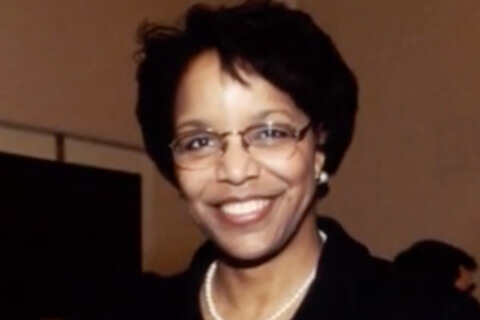
Dr. Joan Y. Reede
Dr. Joan Y. Reede
I'm dean for Diversity and Community Partnership at Harvard Medical School. And it is designed to bring more diversity to the faculty at Harvard Medical School and its affiliated teaching hospitals—and there are 17 affiliated institutions— and to look at diversity efforts at the student, the resident, the faculty, and staff levels. But it also looks at engaging the community, and how we can work better with our surrounding community. But the truth of the matter is, if you're going to bring diversity into medicine, you can't just look at the faculty that are there—people at the end of the pipeline, because the numbers are too small. And so what you have to do is put in place programs that will bring more students into science. Help them understand the joy of science. Help them understand that you can love science, and do anything! So what we've put together at Harvard is a series of programs that says you have to address the total pipeline. And at the same time put together programs that say that it is part of our responsibility to our surrounding community. I think for youth today it can be very hard. And it can be very daunting to think “I have to match the achievements of someone else.” And so I think the first thing is to figure out, what is it that you like doing? What is it that you want to do? What do you want your life to be about? And then to understand that it's going to take a lot of hard work. You can accomplish anything. I see people of color moving into positions that my mother, my grandmother, never dreamed would happen. I see young women who are doing amazing things, and leading amazing things. And that's only going to grow. It's not going to lessen over time, it's going to grow. So I think there are more and more opportunities out there, and no one should let anyone, at any point in time, tell them what they can't do.




